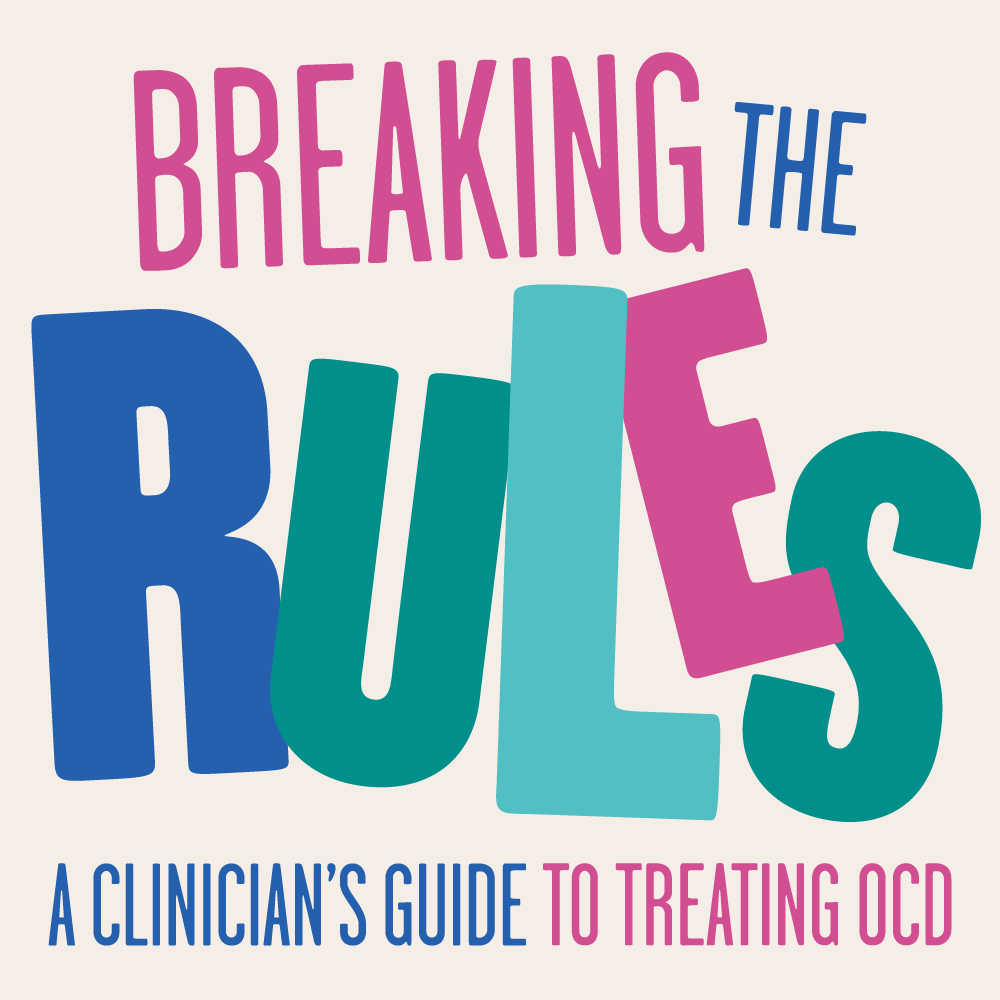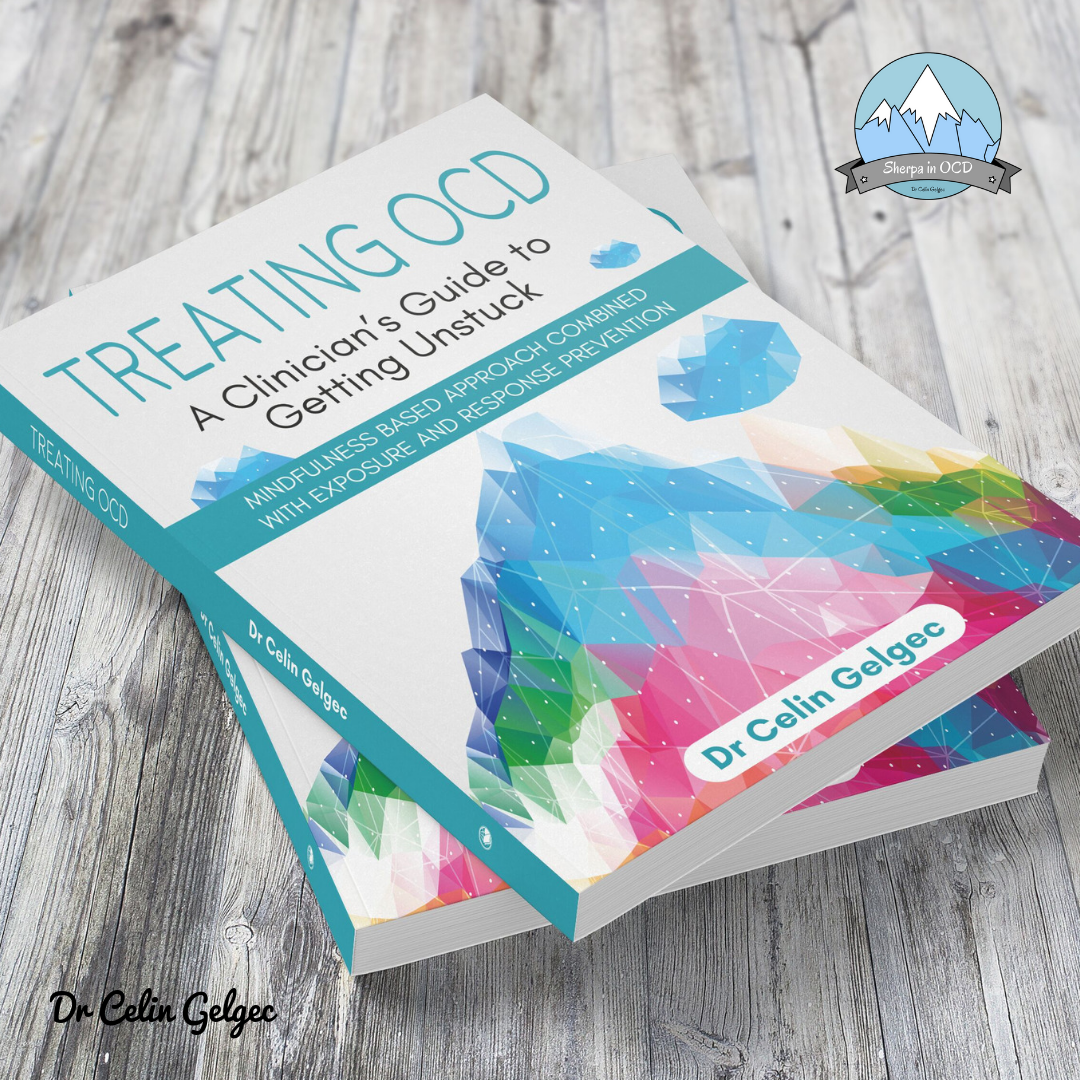Treating OCD: A Clinician's Guide to Getting Unstuck Treatment Manual
Treating OCD: A Clinician's Guide to Getting Unstuck Treatment Manual
Available Now for Dispatch on Orders Worldwide
Treating OCD: A Clinician's Guide to Getting Unstuck is a tried and tested easy-to-use framework for those working with or wanting to work with the complexities of OCD.
In this practical guide, psychologist Celin Gelgec shares the strategies she has adapted and used over the last decade while working with people of all ages who are affected by OCD. The framework includes side notes, troubleshooting sections, and client-ready handouts to help you put it into practice, and provide you with the tools to confidently and effectively assist your clients.
Presented in five treatment modules the book combines techniques from Exposure and Response Prevention, Acceptance and Commitment Therapy, and Dialectical Behaviour Therapy. The application of these strategies are explained with clarity and can be used by psychologists, psychiatrists, mental health social workers and other health professionals who work with this client population.
Celin is passionate about using her experience and enthusiasm to assist anyone who is affected by OCD to change their life for the better. In this book you’ll find a wealth of knowledge, techniques and insight that will enable you to help your clients to get ‘unstuck’.
FOREWORD BY DR SCOTT BLAIR-WEST - PSYCHIATRIST
The OCD Inpatient Programme at The Melbourne Clinic opened its doors in 2005, the first specialised residential programme for OCD in the country. The programme is a multi-disciplinary CBT/ERP programme for OCD patients with psychiatry, psychology, allied health and nursing staff working together with often severely unwell sufferers. A few years later Celin Gelgec arrived to finish her final placement as a clinical Doctorate student in Psychology. It was clear from the outset that she was a “keeper”. She was hardworking, energetic, full of enthusiasm and new ideas and dedicated to the patients and their recovery. She worked beautifully with other staff members and helped us review our programme, workbook and teaching materials. Most of all though, she was curious – “what are their intrusive thoughts, what are they worrying about, what is the ultimate fear or worst-case scenario if their fears fully play out?” It is only with this knowledge that you can plan a successful ERP programme.
I was relieved and happy when Celin chose to stay with us for a further three years after graduating and those years were some of the most successful for our programme, increasing from part-time to full-time and taking referrals from all over the country. Unfortunately for us but happily for her, she moved to her own practice in 2013 to continue her work in an outpatient practice. Actually, this was good for everyone because she has added to the number of exquisitely talented and skilled therapists working with OCD patients in our town. Plus, she has encouraged more and more young psychologists to work with OCD people in her practice over recent years. I am happy to say that I still work with her when we share care of some of the more unwell patients and she remains our first choice when looking for long-term follow-up for our patients. Her expertise is well recognised now and her care much sought after.
In this book Celin presents a concise, readable and engaging account of how to help patients with OCD mainly aimed at the therapist but valuable for those knowledgeable about OCD, patients or family. There are sections on assessment and diagnosis, explaining the model and treatment, mindfulness, ERP and maintenance. Of those perhaps the most important is the second section on describing the model and how CBT/ERP works. I believe this is vital and will often need to be repeated. Similarly, the discussion on exposure and setting ERP tasks is important and the value of continuing ERP over days, weeks and months cannot be over-emphasised. Developing a regular ERP habit is a challenge for all and maintaining this perhaps even harder. I believe that OCD sufferers should see ERP as a good “habit” that they need to cultivate, like brushing one’s teeth. It is not done for enjoyment you stick with it for the long-term benefits it provides.
I also like Celin’s base camp analogy. Dr Mark Freeston, a clinical psychologist from New Zealand has a similar mountain metaphor. Beating OCD feels like climbing a mountain but with a couple of changes – do not stare at the top of the mountain, just focus on your next few steps. And instead of avoiding looking down, keep looking down to where you started from and be encouraged by your progress so far. Please read this book and use it to help you treat OCD, understand OCD or help someone you love with OCD.
DR SCOTT BLAIR-WEST
CONSULTANT PSYCHIATRIST
MBBS DPM FRANZCP
Senior Fellow, Department of Psychiatry, The University of Melbourne
Adjunct Lecturer Alfred Psychiatry Research Centre (MAPrc), Monash University
Medical Director, Anxiety and Depression Program, The Melbourne Clinic, Richmond
Consultant Psychiatrist, The Melbourne Clinic, Richmond
Formerly Lecturer in Psychiatry and Consultant Psychiatrist, Department of Psychiatry, The University of Melbourne
Formerly Consultant Psychiatrist to Bethesda Campus, Epworth Hospital, Richmond

